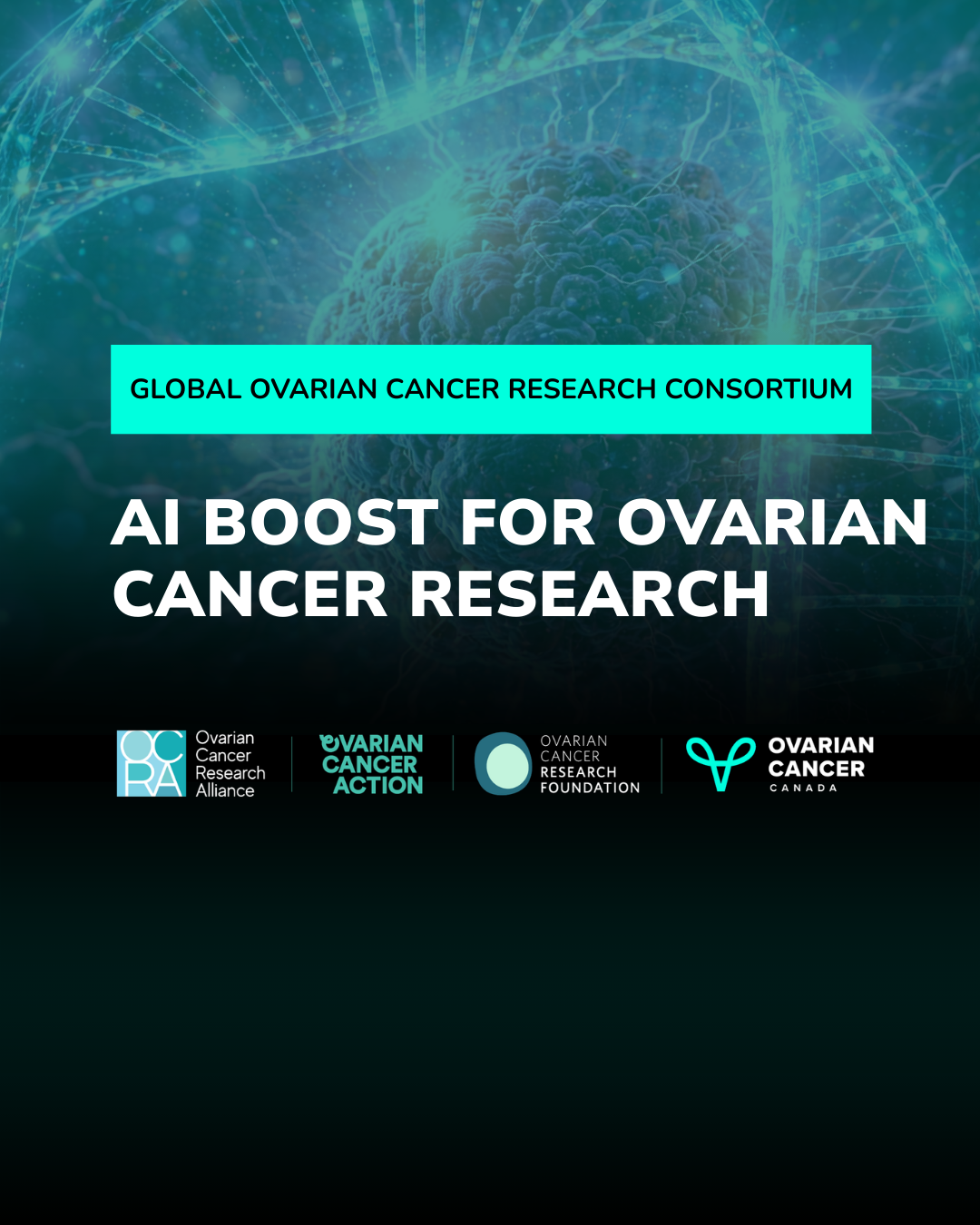Experts agree: “If you or a close relative has been diagnosed with ovarian cancer, speak to your doctor about getting genetic counseling.”
In the wake of Angelina Jolie’s announcement that she carries a genetic mutation linked to breast and ovarian cancers, thousands of women are wondering whether they are at risk. To address their concerns, four women’s health organizations have joined together to provide essential information about risk factors and symptoms of ovarian cancer.
All women are at risk of developing ovarian cancer, with one in 72 experiencing this devastating diagnosis during her lifetime. If you or a close relative have had ovarian cancer, talk to your doctor about genetic counseling to explore your options. Just like eye color, a tendency to develop certain cancers can be inherited from our parents.
Both genetic risk and decisions about medical intervention are deeply personal. Some women with a strong family history may opt for testing to determine whether they carry genetic mutations such as BRCA1, BRCA2 and Lynch syndrome—all of which increase the risk of ovarian cancer. Women who know they have a genetic mutation, like Angelina Jolie, may decide to have prophylactic surgery—removing their breasts and ovaries to reduce their risk. Alternately, with their doctor, they might choose careful monitoring to ensure that any cancer is detected as early as possible. A consensus statement on ovarian cancer risk and the BRCA1 and BRCA2 mutations is available here.
All women are encouraged to learn the signs of ovarian cancer, a disease for which there is no reliable early detection test. The symptoms of ovarian cancer are:
Bloating
Pelvic or abdominal pain
Difficulty eating or feeling full quickly
Urinary symptoms (urgency or frequency)
If you experience these symptoms, they are new and unusual for you, and persist for 14 days or more in a given month, visit your doctor, preferably a gynecologist, to ask about ovarian cancer. If you have been diagnosed with a gynecologic cancer, seek care first from a gynecologic oncologist.
The following organizations have endorsed this statement and are available as a resource for media and women at risk of breast and ovarian cancer.
Foundation for Women’s Cancer
The Foundation for Women’s Cancer is the only national organization dedicated to funding research and training, and ensuring education and public awareness of all gynecologic cancers, focusing on prevention, early detection and optimal treatment. Founded by the Society of Gynecologic Oncologists in 1991, the Foundation provides free educational courses and resources for women, and supports promising, innovative gynecologic cancer research, including 11 ovarian cancer research grants each year.
Ovarian Cancer National Alliance
The Ovarian Cancer National Alliance is a powerful voice for everyone touched by ovarian cancer. We connect survivors, women at risk, caregivers and health providers with the information and resources they need. We ensure that ovarian cancer is a priority for lawmakers and agencies in Washington, DC, and throughout the country. We help our community raise their voices on behalf of every life that has been affected by this disease.
Ovarian Cancer Research Fund
Ovarian Cancer Research Fund (OCRF) is the oldest and largest charity in the United States funding ovarian cancer research. Our mission is to fund scientific research that leads to more effective identification, treatment, and ultimately a cure for ovarian cancer. Each year there will be approximately 22,000 new cases of ovarian cancer in the United States, and about 15,500 women will die of the disease. Currently there is no effective means of early detection. Since 1998, OCRF has awarded over $50 million in grants for ovarian cancer research to scientists at more than 63 leading medical centers in the U.S.
Society for Women’s Health Research
The Society for Women’s Health Research (SWHR), a national non-profit organization, is the thought leader in promoting research on the study of sex differences in disease and is dedicated to transforming women’s health through science, advocacy and education. Visit SWHR’s website: www.swhr.org for more information.


